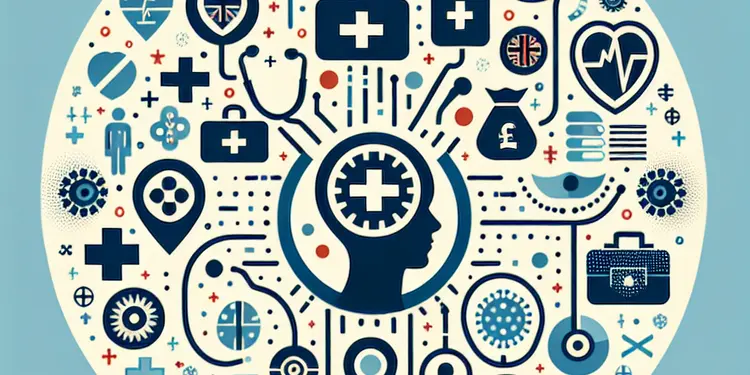
Find Help
More Items From Ergsy search
-
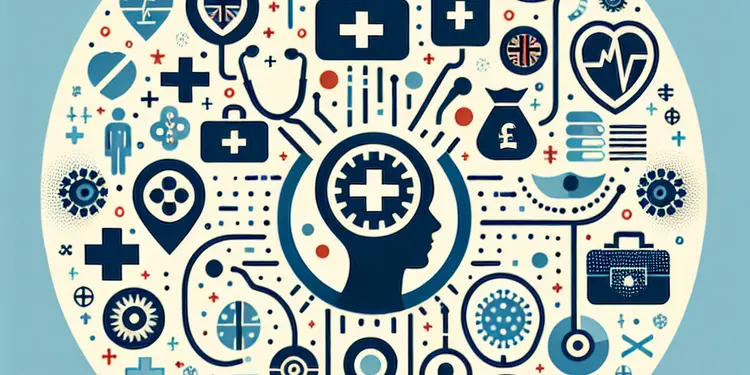
What kinds of specialists are involved in treating Huntington's disease?
Relevance: 100%
-

What is Huntington's disease?
Relevance: 70%
-
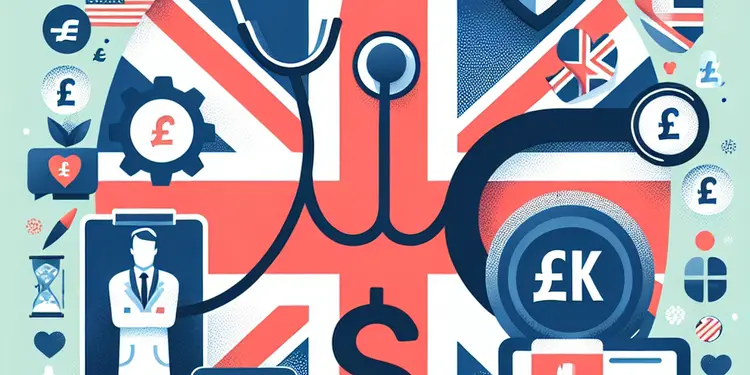
How is Huntington's disease diagnosed?
Relevance: 69%
-
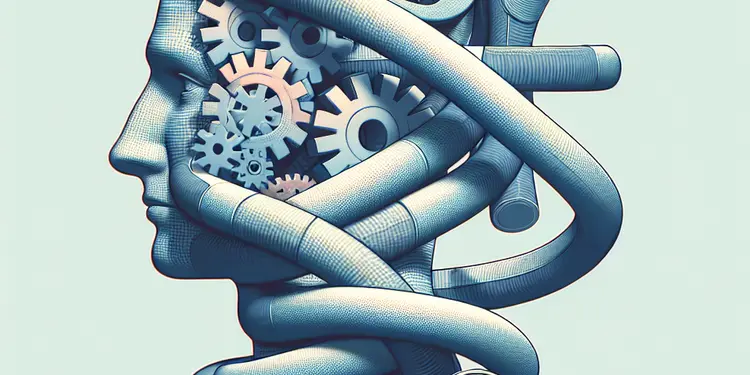
Is Huntington's disease fatal?
Relevance: 66%
-

Can Huntington's disease be cured?
Relevance: 65%
-
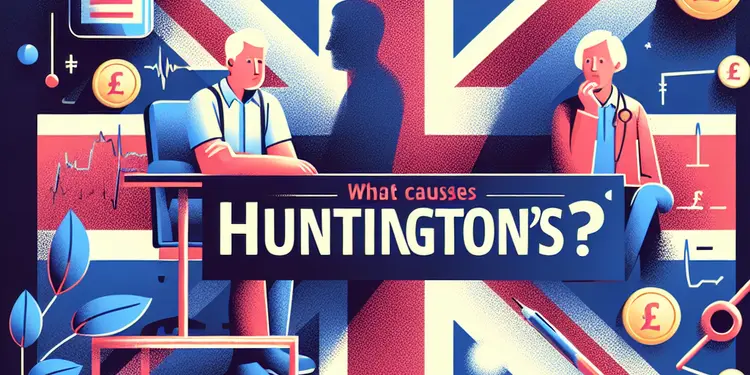
What causes Huntington's disease?
Relevance: 64%
-
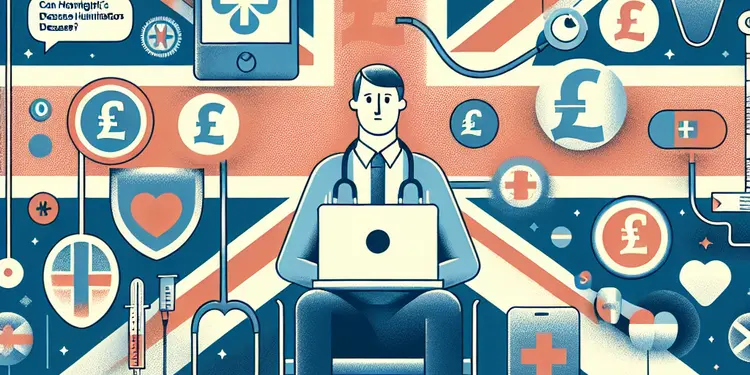
Can Huntington's disease be prevented?
Relevance: 63%
-
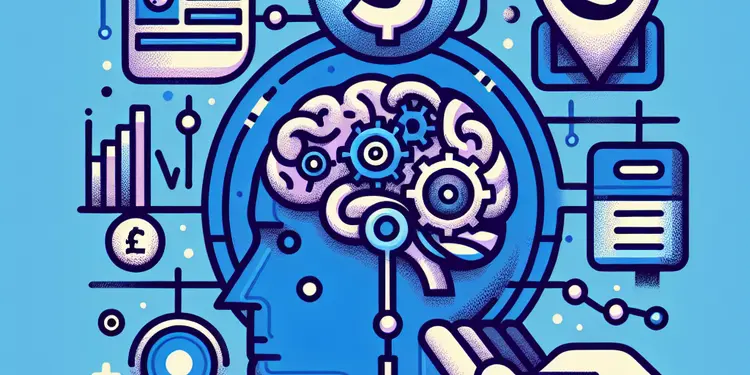
What are the symptoms of Huntington's disease?
Relevance: 63%
-
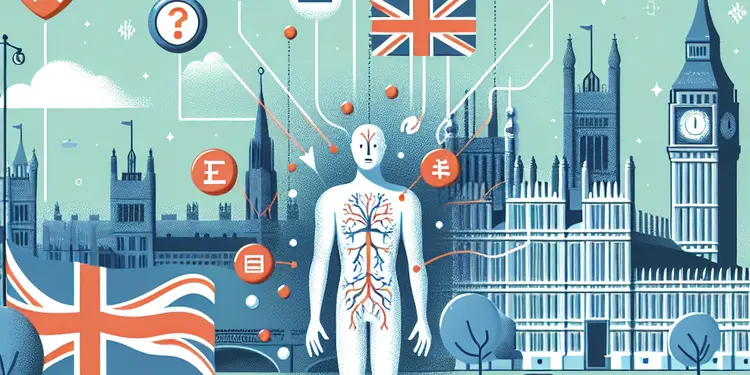
How does Huntington's disease affect emotions?
Relevance: 61%
-

What research is being done on Huntington's disease?
Relevance: 60%
-

How does Huntington's disease affect movement?
Relevance: 59%
-
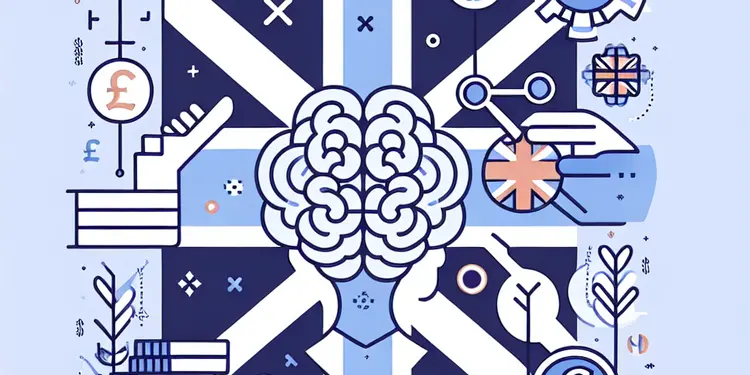
How does Huntington's disease affect cognition?
Relevance: 59%
-
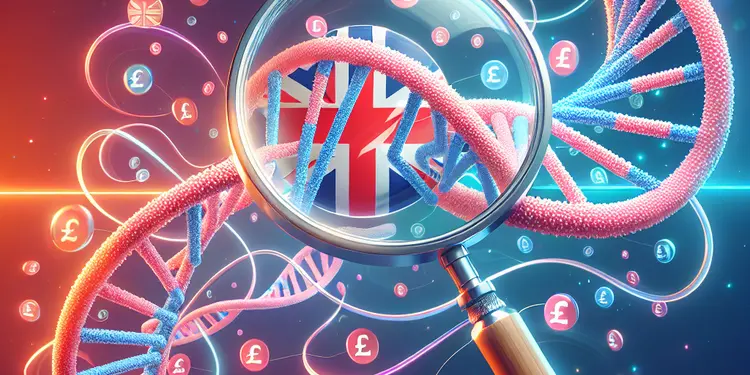
What is the role of genetic testing in Huntington's disease?
Relevance: 58%
-

At what age do symptoms of Huntington's disease typically appear?
Relevance: 58%
-

Can lifestyle changes help manage Huntington's disease?
Relevance: 55%
-

How is Huntington's disease inherited?
Relevance: 46%
-
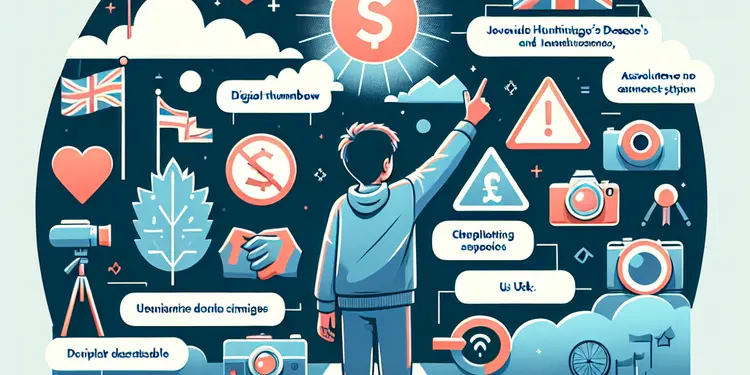
What is Juvenile Huntington's disease?
Relevance: 46%
-

Are there treatments available for Huntington's disease?
Relevance: 46%
-
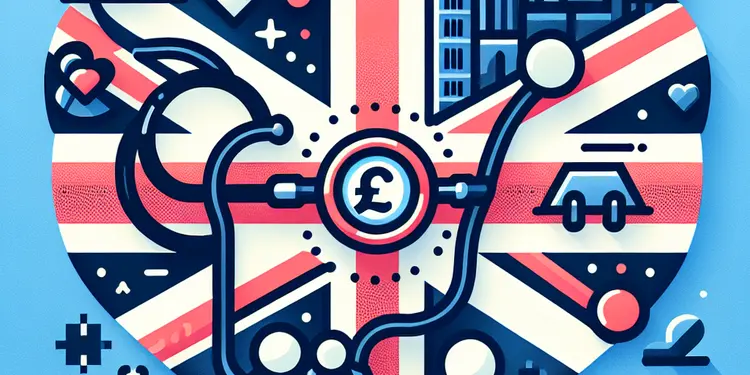
What support is available for families affected by Huntington's disease?
Relevance: 44%
-
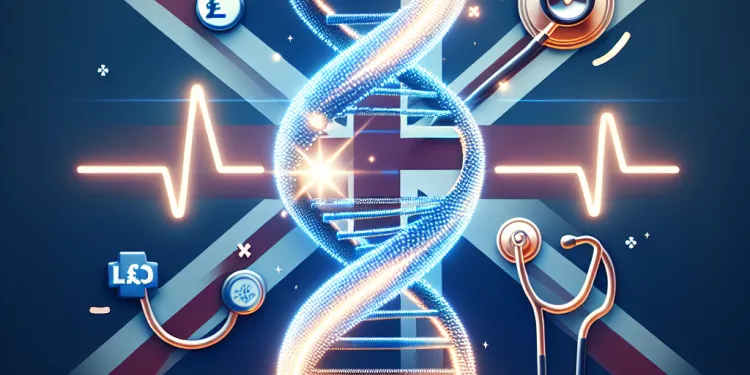
How is sickle cell disease treated?
Relevance: 42%
-

Can Lyme disease be treated?
Relevance: 42%
-

Can flesh-eating disease be treated?
Relevance: 39%
-
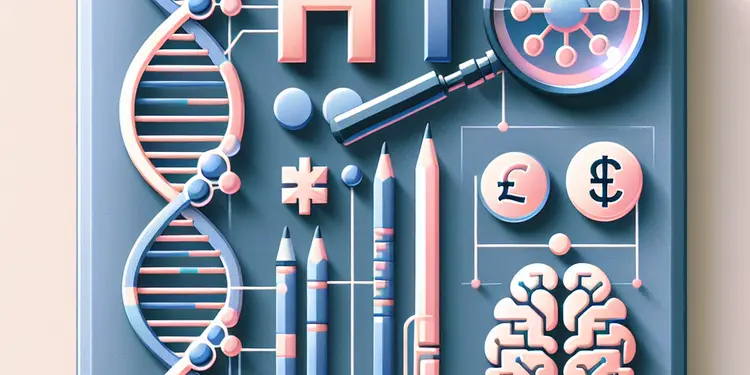
What role does the HTT gene play in Huntington's disease?
Relevance: 38%
-

How effective are antibiotics in treating Lyme disease?
Relevance: 37%
-
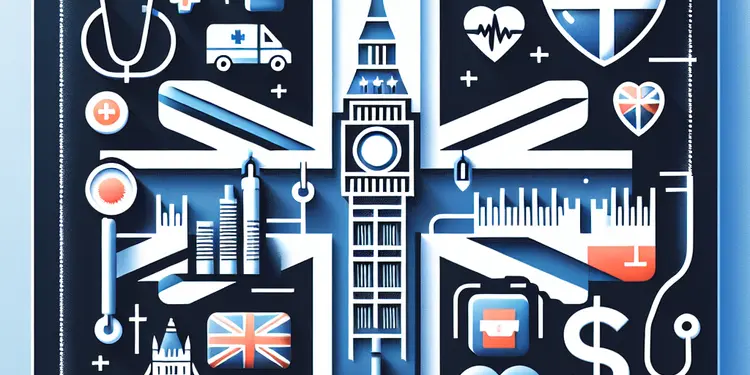
Is surgery always required to treat flesh-eating disease?
Relevance: 36%
-
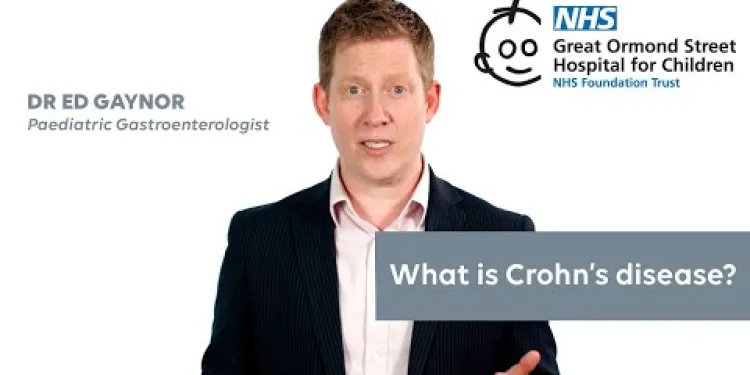
What is Crohn’s disease and how is it treated?
Relevance: 36%
-
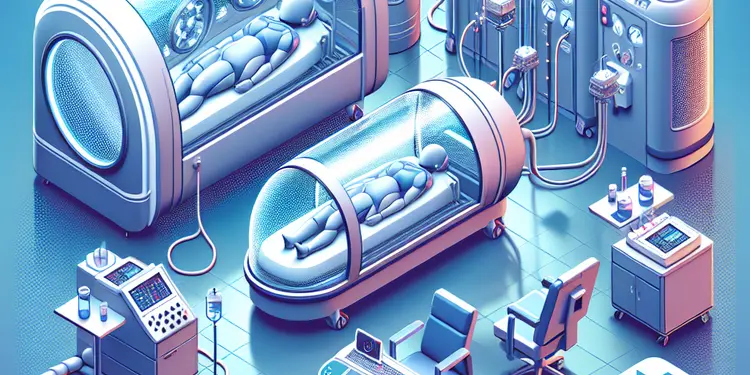
What is the role of hyperbaric oxygen therapy in treating flesh-eating disease?
Relevance: 34%
-

The Leeds Specialist Rehabilitation Centre - 3 Prosthetic Physiotherapy
Relevance: 31%
-

Newcastle Specialist Continence Service's Light Urinary Incontinence Project
Relevance: 31%
-
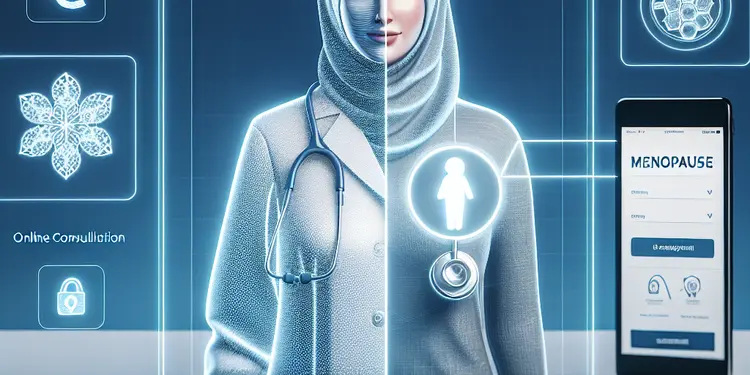
Can I consult with a specialist about menopause online through the NHS?
Relevance: 29%
-
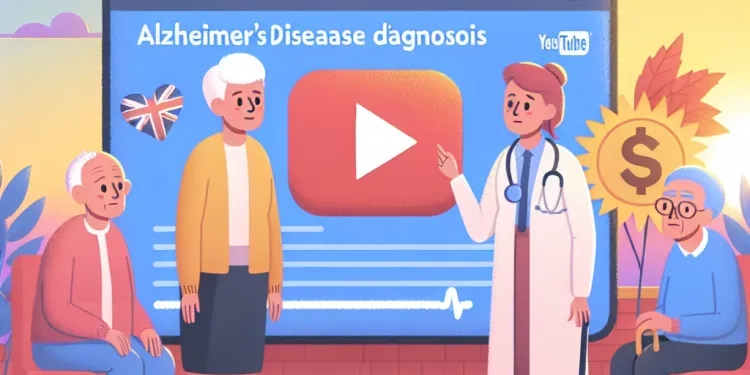
How is Alzheimer's disease diagnosed?
Relevance: 28%
-
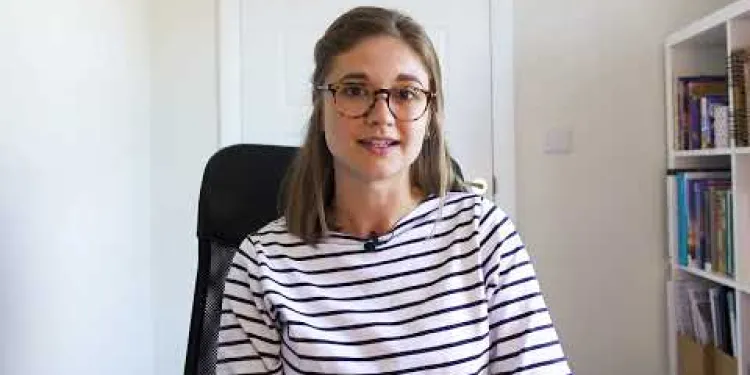
Jess Rann - Specialist Eating Disorders Dietitian
Relevance: 27%
-

What is Lyme Disease?
Relevance: 27%
-
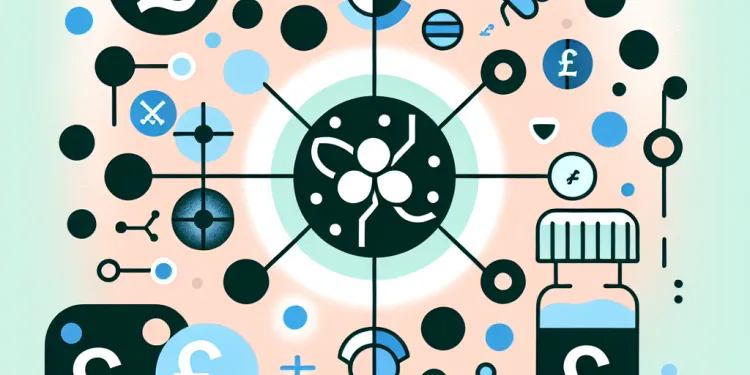
What types of antibiotics are typically used to treat Lyme disease?
Relevance: 27%
-

Is flesh-eating disease contagious?
Relevance: 27%
-

What support is available for people with Crohn's disease in the UK?
Relevance: 26%
-
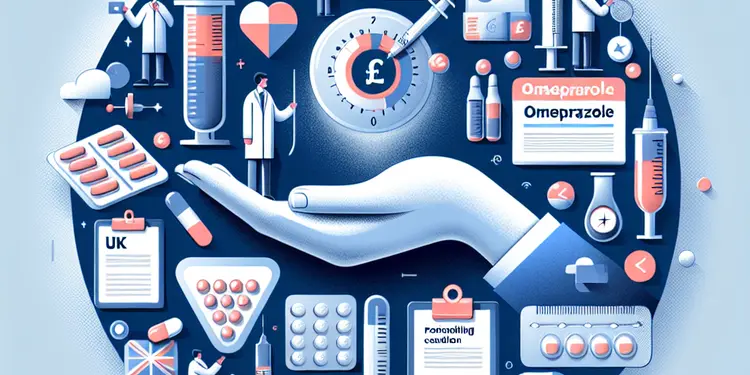
What conditions is Omeprazole used to treat?
Relevance: 25%
-
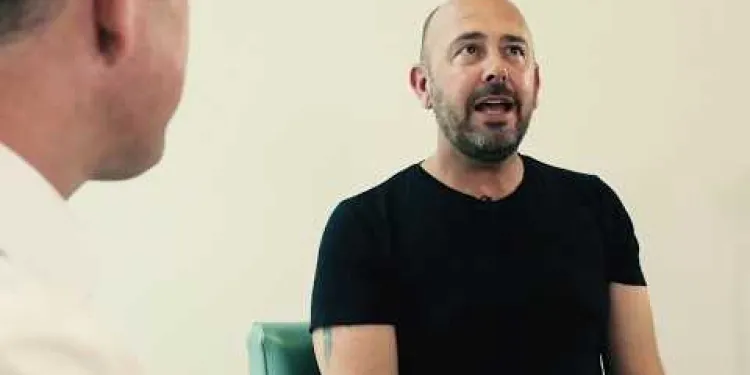
Living with early stage kidney disease
Relevance: 25%
-
Can eating disorders be treated?
Relevance: 24%
-

Lyme disease: What is it?
Relevance: 24%
Neurologists
In the UK, neurologists play a central role in the diagnosis and ongoing management of Huntington's disease. As specialists in disorders of the brain and nervous system, neurologists have the expertise to identify the signs of Huntington's and oversee the treatment to manage symptoms. They often coordinate the care team and work closely with other specialists to ensure comprehensive patient management.
Geneticists
Geneticists are crucial in the early stages of Huntington's disease care, particularly regarding diagnosis and family counseling. They conduct genetic testing to confirm the presence of the Huntington's disease gene in patients who exhibit symptoms. Geneticists also provide guidance and support to family members, as Huntington's is an inherited disorder.
Psychiatrists
Psychiatrists are often involved due to the psychiatric and cognitive aspects of Huntington's disease. They address mood disorders, such as depression and anxiety, which are common in Huntington's patients. Psychiatrists may also manage psychotic symptoms and offer counseling and medication to support mental health needs.
Physiotherapists
Physiotherapists help manage the motor symptoms associated with Huntington's disease. They design exercise programs to improve strength, balance, and mobility, helping patients maintain physical function and independence for as long as possible. This support is vital to improve quality of life and manage the progression of physical symptoms.
Occupational Therapists
Occupational therapists assist people with Huntington's disease in maintaining their daily living activities. They provide strategies and tools to help with challenges in the home and workplace, aiming to enhance the patient's ability to lead a more independent life. They might suggest modifications to the environment to aid with safety and accessibility.
Speech and Language Therapists
Speech and language therapists address the communication difficulties and swallowing problems that often arise as Huntington's disease progresses. They work on techniques to improve speech clarity and help manage dysphagia (swallowing difficulties), ensuring that patients can communicate effectively and eat safely.
Dietitians
Dietitians offer nutritional advice to ensure that patients maintain a healthy diet, addressing issues such as weight loss and energy needs. As Huntington's can affect a person's appetite and ability to eat, personalized dietary plans can help manage these concerns and improve the patient's well-being.
Clinical Psychologists
Clinical psychologists provide support for both patients and their families, helping them cope with the emotional and social challenges of Huntington's disease. Through counseling and therapeutic interventions, they encourage adaptive coping strategies and improve mental well-being.
Social Workers
Social workers provide valuable support in navigating the healthcare system and accessing resources. They assist with care planning, coordinating services, and offering guidance on legal and financial issues related to long-term care and support.
Neurologists
In the UK, neurologists are doctors who help people with brain and nervous system problems, like Huntington's disease. They know how to find out if someone has Huntington's and help them manage the symptoms. Neurologists work with other doctors to make sure people get all the help they need.
Geneticists
Geneticists are important when people first find out they might have Huntington's disease. They do tests to see if someone has the Huntington's gene. They also talk to families to help them understand because Huntington's can run in families.
Psychiatrists
Psychiatrists help with the feelings and thinking problems that come with Huntington's disease. They help if someone feels very sad or worried. Psychiatrists can also give medicine to help with these feelings and talk about ways to feel better.
Physiotherapists
Physiotherapists help people move better when they have Huntington's disease. They show exercises to make people stronger and help them with walking and balance. These exercises help people stay active and do things by themselves for as long as they can.
Occupational Therapists
Occupational therapists help people with Huntington's disease do everyday tasks. They give tips and tools to make things easier at home and work, so people can be more independent. They might change things at home to make it safer and easier to get around.
Speech and Language Therapists
Speech and language therapists help with talking and swallowing problems in people who have Huntington's disease. They teach ways to speak more clearly and eat safely, so people can communicate well and enjoy their meals.
Dietitians
Dietitians give advice on what to eat to stay healthy. They help if someone with Huntington's disease starts to lose weight or has trouble eating. They create special meal plans to keep the person strong and healthy.
Clinical Psychologists
Clinical psychologists help people and their families deal with the feelings and changes that come with Huntington's disease. They talk with people to find ways to cope better and support their mental health.
Social Workers
Social workers help people understand how to get the care and services they need. They help plan care and give advice on important things like legal and money matters related to long-term care.
Frequently Asked Questions
What is Huntington's disease?
Huntington's disease is a genetic disorder that causes the progressive breakdown of nerve cells in the brain, leading to motor, cognitive, and psychiatric symptoms.
What types of specialists typically treat Huntington's disease?
A multidisciplinary team often treats Huntington's disease, including neurologists, psychiatrists, genetic counselors, physical therapists, occupational therapists, speech therapists, and social workers.
Why is a neurologist important in treating Huntington's disease?
A neurologist specializes in disorders of the nervous system and is crucial for diagnosing Huntington's disease and managing neurological symptoms.
How do psychiatrists contribute to the care of Huntington's disease patients?
Psychiatrists help manage psychiatric symptoms such as depression, anxiety, and mood disorders, which are common in Huntington's disease.
What role does a genetic counselor play in the treatment of Huntington's disease?
Genetic counselors provide information about genetic testing, help patients and families understand inheritance patterns, and offer support for decision-making regarding family planning.
How can physical therapists assist individuals with Huntington's disease?
Physical therapists create exercise programs to improve mobility, strength, and balance, helping to maintain independence for as long as possible.
What is the role of an occupational therapist in managing Huntington's disease?
Occupational therapists assist patients in modifying daily activities and the environment to enhance functional independence and safety.
Why might a speech therapist be needed for Huntington's disease patients?
Speech therapists help manage speech and swallowing difficulties, improving communication and reducing risks of aspiration.
What support can social workers provide to Huntington's disease patients and families?
Social workers offer emotional support, access to resources, assistance with care planning, and guidance on legal and financial concerns.
Can nutritionists be involved in the care of Huntington's disease?
Yes, nutritionists can provide dietary advice to manage weight and nutritional needs, crucial for patients with swallowing difficulties or metabolic demands.
How do clinical psychologists assist patients with Huntington's disease?
Clinical psychologists provide therapy and counseling to help patients and families cope with emotional and behavioral challenges associated with the disease.
Are there specialist nurses for Huntington's disease management?
Yes, specialist nurses often have expertise in managing symptoms, educating patients and families, and coordinating care among different medical professionals.
What is the role of geneticists in Huntington's disease?
Geneticists study genes and can provide a deeper understanding of the genetic aspects of Huntington's disease, including implications for other family members.
Do rehabilitation specialists contribute to Huntington's disease treatment?
Rehabilitation specialists work on maintaining and improving physical function through tailored exercise and therapy programs.
Why is regular neurological assessment important for Huntington's disease patients?
Regular assessments help track disease progression, allowing for adjustments in treatment and management strategies to address new symptoms.
How do home care providers support Huntington's disease patients?
Home care providers offer in-home assistance with daily tasks, personal care, and medical needs, supporting both patients and their families.
Can palliative care specialists be involved in Huntington's disease management?
Yes, palliative care specialists focus on providing relief from symptoms and improving quality of life for patients with advanced disease.
What is the role of research specialists in relation to Huntington's disease?
Research specialists conduct studies to understand the disease better, develop new treatments, and improve existing therapies.
How do patient advocates assist those with Huntington's disease?
Patient advocates provide support, resources, and information on rights and services available, empowering patients and families in managing the disease.
What is the importance of a multidisciplinary approach in treating Huntington's disease?
A multidisciplinary approach ensures comprehensive care, addressing the diverse needs of patients with Huntington's disease through a coordinated effort of various specialists.
What is Huntington's disease?
Huntington's disease is an illness. It hurts the brain. It can make it hard to move, think, and feel.
Signs to look for:
- Problems with moving your body.
- Finding it hard to think clearly.
- Changes in how you feel or act.
If you want to know more or need help, talk to a doctor. They can give you more information. You can also use apps or tools that help with reading. These can make it easier to understand this info.
Huntington's disease is an illness you get from your parents. It makes brain cells stop working slowly over time. This causes problems with moving, thinking, and feeling.
Who are the doctors that help people with Huntington's disease?
Different doctors can help if you have Huntington's disease. These doctors know a lot about the brain and body. Here are some of them:
- Neurologist: This doctor helps with brain problems. They know about diseases like Huntington's.
- Psychiatrist: This doctor helps with feelings and behavior. They can help if you feel sad or worried.
- Genetic Counselor: This person can explain how Huntington’s disease runs in families. They help you understand your choices.
- Physical Therapist: This person helps you move better. They can show exercises to keep your body strong.
- Occupational Therapist: This person helps you with everyday tasks. They find ways to make things easier for you.
- Speech Therapist: This person helps you if speaking or swallowing is hard.
If you or someone you know has Huntington’s disease, remember it's okay to ask for help. These doctors and helpers can support you.
A group of different helpers take care of people with Huntington's disease. They include doctors for the brain, doctors for feelings, experts who talk about genes, body exercise helpers, work helpers, talking helpers, and friends who help with everyday life.
Why do we need a brain doctor to help with Huntington's disease?
A brain doctor can help people with Huntington's disease. They know a lot about the brain.
They can help understand what happens in your brain. They know how to make you feel better.
Here are some tools or methods that might help:
- Talking to the doctor about any problems you have.
- Using medicine the doctor gives you.
- Doing exercises to help your body and brain stay strong.
- Getting support from family and friends.
A neurologist is a doctor who helps with problems in the brain and nerves. They are important for finding out if someone has Huntington's disease and helping with the symptoms that affect the brain and body.
To make it easier to read, try breaking the text into smaller parts and read out loud one sentence at a time. Using a ruler or your finger to track the words might also help.
How do doctors help people with Huntington's disease?
Doctors for the brain help people with Huntington's disease feel better. They talk to the patients and listen to their feelings. They give medicine to help with sadness and worry.
They also help families understand the disease. This way, everyone can work together to help the person feel as good as possible.
Using pictures, videos, or talking about feelings can help understand this better.
Doctors called psychiatrists help people with feelings and moods. They help if someone is sad, worried, or if their moods change a lot. This can happen to people with Huntington's disease.
What does a genetic counselor do for people with Huntington's disease?
A genetic counselor is a special helper. They talk to people and families about Huntington's disease. They help people understand the disease and what it means.
Genetic counselors explain how the disease is passed down in families. They help people decide if they want to take a test to check for the disease.
They also offer support and talk about what people can do next. If you have questions or worries, a genetic counselor is there to help.
Here are some tools that can help:
- Pictures: Looking at pictures can help you understand better.
- Videos: Watching videos can make things clearer.
- Simple Words: Ask the counselor to use simple words.
- Ask Questions: It is okay to ask lots of questions.
Genetic counselors help people understand genetic tests. They explain how traits are passed down in families. They also support people in making choices about having a family.
How can physical therapists help people with Huntington's disease?
Physical therapists are people who help you move your body better. They can help you if you have Huntington's disease. Here’s how:
- They teach exercises to make you stronger and help you move.
- They can show you how to walk safely if you have trouble.
- They help you do things like stretching, balance, and relaxing.
If it's hard to remember exercises, you can:
- Use pictures or videos to help understand the steps.
- Ask someone to do the exercises with you.
- Make a checklist to keep track of your exercises.
This way, physical therapists help make moving easier and safer for people with Huntington's disease.
Physical therapists help people move better. They make special exercise plans to help you get stronger and keep your balance. This helps you stay independent for a longer time.
What does an occupational therapist do for someone with Huntington's disease?
An occupational therapist helps people do daily activities more easily. They teach new ways to do things. For people with Huntington's disease, they help with:
- Getting dressed
- Eating meals
- Moving around safely
- Using special tools
An occupational therapist might use pictures, videos, or practice to help. They work with families too!
Occupational therapists help people change the way they do everyday activities to make things easier and safer for them.
Why do people with Huntington's disease need a speech therapist?
People with Huntington's disease might have trouble talking and swallowing. A speech therapist helps them speak clearly and eat safely. They show exercises and tips that make talking and swallowing easier. Tools like picture cards or speech apps can also help.Speech therapists help people talk better and swallow safely. They make it easier to communicate and stop food from going down the wrong way.
How can social workers help people with Huntington's disease and their families?
Social workers can do a lot to help families with Huntington's disease. Here are some ways they can help:
- Talking: Social workers can talk to you and listen to your worries. They are good at helping you understand your feelings.
- Information: They can give you easy information about Huntington's disease, so you know what it is and what to expect.
- Planning: They can help you make a plan for the future, like where to get help if you need it.
- Finding Help: Social workers know about different places and people that can help you. They can help you contact doctors, nurses, or support groups.
- Care: If you need special care, social workers can help you get it at home or in another place.
If you have questions or need help, you can always ask a social worker. They are there to help you and your family.
Social workers help people in many ways. They listen and give support. They can help find things you need, like services or information. Social workers assist with making care plans. They also give advice about money and legal issues.
Can food experts help people with Huntington's disease?
People with Huntington's disease might find it hard to eat well. Food experts, called nutritionists, can give advice on healthy eating. They help pick foods that are good for the body.
Nutritionists can make eating plans that help keep people strong. They can also suggest ways to make eating easier.
It can be helpful to use tools like soft spoons or special cups to help with eating and drinking.
Asking a nutritionist for help is a good idea to stay healthy.
Yes, nutrition experts can help with food advice. They can show how to eat well to keep a good weight and stay healthy. This is very important for people who have trouble swallowing or have special body needs.
How do doctors help people with Huntington's disease?
Doctors can help people by:
-Listening to their feelings.
-Helping them talk about worries.
-Teaching ways to deal with stress.
Some tools and tips that might help:
-Use pictures to explain things.
-Watch videos about the disease.
-Write down feelings in a diary.
Clinical psychologists are people who help others talk about their feelings and actions. They work with patients and families to deal with problems that come with being sick.
Are there nurses who help people with Huntington's disease?
Yes, some nurses know a lot about Huntington's disease. They help people who have it. These nurses are called specialist nurses.
If you or someone you know has Huntington's disease, a specialist nurse can give support and advice. They can help with medicines and answer questions.
If you need more help, you can ask your doctor or health worker about talking to a specialist nurse.
Tools and tips to help:
- Use a calendar to keep track of doctor visits.
- Write down questions to ask the nurse or doctor.
- Ask someone you trust to go with you to appointments.
Yes, special nurses are really good at helping with symptoms. They teach patients and families what they need to know. They also help different doctors and nurses work together.
What do geneticists do to help with Huntington's disease?
Geneticists study genes and help with diseases like Huntington's.
This is what they do:
- Look at family health history to see who might get Huntington's.
- Do tests to find the Huntington's gene in people.
- Help families understand how the disease works.
- Work with doctors to find the best care for the person.
If you want to learn more, a genetic counselor can explain things in simple words. They are there to help you understand and feel better.
Scientists called geneticists look at genes. They can help us learn more about the genes linked to Huntington's disease. They can also explain what this means for other people in the family.
Can rehab helpers help people with Huntington's disease?
Rehabilitation specialists help people move better with special exercises and treatments. They make programs that work just for you.
Why are check-ups important for people with Huntington's disease?
Regular check-ups with a doctor help people with Huntington's disease. The doctor can see how the person is doing. This helps the doctor give the best care.
Tools that might help include:
- A calendar to plan doctor visits.
- Using a notebook to write down any changes.
- Having a family member or friend go with them to the appointment.
Regular check-ups help us see how the disease is changing. This helps us change the treatment plan and take care of new symptoms.
How do helpers take care of people with Huntington's disease at home?
When people have Huntington's disease, they might need help at home. Helpers can:
- Help them do things like getting dressed and eating meals.
- Remind them to take medicine.
- Keep them safe and comfortable.
- Talk and be friendly with them.
To learn more, you can:
- Use picture cards to communicate.
- Watch videos about Huntington's disease.
- Ask questions to a doctor or nurse.
Home care helpers come to your house. They help with daily chores, taking care of you, and any medical needs. These helpers also support your family.
Can doctors who help with comfort care help with Huntington's disease?
Doctors who give comfort care support people with serious sickness. They help people feel better and not be in pain.
People with Huntington's disease can also get this kind of care. It makes life easier for them and their families.
Here are some tools that can help:
- Draw a picture to show how comfort care helps. This makes it easier to understand.
- Use simple words and explain things with real-life examples.
- Ask someone to read with you and talk about what you learned.
- Use a list or chart to remember the important points.
Yes, palliative care specialists help people feel better. They take away pain and make life nicer for people who are very sick.
What Do Research Experts Do About Huntington's Disease?
Research experts study Huntington's disease to find out more about it. They look for better ways to help people who have the disease. They try to find new medicines and treatments.
If you know someone with Huntington's disease, it might be helpful to talk to a doctor. They can give you more information and support.
Research specialists are people who study diseases. They try to understand the disease better. They also work to make new treatments and improve the treatments we have now.
Tools that can help with reading:
- Use a ruler or finger to keep your place while reading.
- Break information into smaller parts and read one part at a time.
- Look at pictures or diagrams if there are any, as they can help explain the text.
How do helpers support people with Huntington's disease?
Helpers, called "patient advocates," do many things to support people who have Huntington's disease. Here are a few ways they help:
Listen and Talk: They listen to the person with the disease and talk to them about their feelings and needs.
Explain Things: They help explain what Huntington's disease is and what to expect.
Find Resources: They look for helpful things like doctors, support groups, and information for the person.
It's important to ask for help if you or someone you know has Huntington's disease. A patient advocate can make things easier to understand and manage.
Some tools that might help include:
Visual Aids: Using pictures or drawings to explain things better.
Writing it Down: Keeping notes about what the doctor says can help remember information.
Support Groups: Joining a group of people who go through the same things can be supportive.
Patient advocates are people who help others when they are sick. They give support, helpful information, and show what services and rights people can have. This helps patients and their families feel strong and know how to handle being sick.
Why is it important to have a team of different experts help treat Huntington's disease?
Huntington's disease is a serious illness that affects the brain. To help people with this disease, it is good to have a team of many experts. Each expert knows a lot about one part of the treatment.
Here are some examples of these experts:
- Doctors: They help with medical treatment.
- Nurses: They give care and support every day.
- Physical Therapists: They help with exercises to keep the body strong.
- Speech Therapists: They help if there are problems with talking or swallowing.
- Psychologists: They help with feelings and emotions.
- Social Workers: They help find support and services.
These experts work together to give the best care. Working as a team helps everyone get the support they need.
Some helpful tools and techniques can include:
- Writing lists or using pictures to remember things.
- Using special apps to improve communication.
- Setting routines to make the day easier.
A team of different doctors and helpers work together to give the best care for people with Huntington's disease. This way, all of a person's needs are looked after.
Useful Links
This website offers general information and is not a substitute for professional advice.
Always seek guidance from qualified professionals.
If you have any medical concerns or need urgent help, contact a healthcare professional or emergency services immediately.
Some of this content was generated with AI assistance. We’ve done our best to keep it accurate, helpful, and human-friendly.
- Ergsy carfully checks the information in the videos we provide here.
- Videos shown by Youtube after a video has completed, have NOT been reviewed by ERGSY.
- To view, click the arrow in centre of video.
- Most of the videos you find here will have subtitles and/or closed captions available.
- You may need to turn these on, and choose your preferred language.
- Go to the video you'd like to watch.
- If closed captions (CC) are available, settings will be visible on the bottom right of the video player.
- To turn on Captions, click settings .
- To turn off Captions, click settings again.
More Items From Ergsy search
-

What kinds of specialists are involved in treating Huntington's disease?
Relevance: 100%
-

What is Huntington's disease?
Relevance: 70%
-

How is Huntington's disease diagnosed?
Relevance: 69%
-

Is Huntington's disease fatal?
Relevance: 66%
-

Can Huntington's disease be cured?
Relevance: 65%
-

What causes Huntington's disease?
Relevance: 64%
-

Can Huntington's disease be prevented?
Relevance: 63%
-

What are the symptoms of Huntington's disease?
Relevance: 63%
-

How does Huntington's disease affect emotions?
Relevance: 61%
-

What research is being done on Huntington's disease?
Relevance: 60%
-

How does Huntington's disease affect movement?
Relevance: 59%
-

How does Huntington's disease affect cognition?
Relevance: 59%
-

What is the role of genetic testing in Huntington's disease?
Relevance: 58%
-

At what age do symptoms of Huntington's disease typically appear?
Relevance: 58%
-

Can lifestyle changes help manage Huntington's disease?
Relevance: 55%
-

How is Huntington's disease inherited?
Relevance: 46%
-

What is Juvenile Huntington's disease?
Relevance: 46%
-

Are there treatments available for Huntington's disease?
Relevance: 46%
-

What support is available for families affected by Huntington's disease?
Relevance: 44%
-

How is sickle cell disease treated?
Relevance: 42%
-

Can Lyme disease be treated?
Relevance: 42%
-

Can flesh-eating disease be treated?
Relevance: 39%
-

What role does the HTT gene play in Huntington's disease?
Relevance: 38%
-

How effective are antibiotics in treating Lyme disease?
Relevance: 37%
-

Is surgery always required to treat flesh-eating disease?
Relevance: 36%
-

What is Crohn’s disease and how is it treated?
Relevance: 36%
-

What is the role of hyperbaric oxygen therapy in treating flesh-eating disease?
Relevance: 34%
-

The Leeds Specialist Rehabilitation Centre - 3 Prosthetic Physiotherapy
Relevance: 31%
-

Newcastle Specialist Continence Service's Light Urinary Incontinence Project
Relevance: 31%
-

Can I consult with a specialist about menopause online through the NHS?
Relevance: 29%
-

How is Alzheimer's disease diagnosed?
Relevance: 28%
-

Jess Rann - Specialist Eating Disorders Dietitian
Relevance: 27%
-

What is Lyme Disease?
Relevance: 27%
-

What types of antibiotics are typically used to treat Lyme disease?
Relevance: 27%
-

Is flesh-eating disease contagious?
Relevance: 27%
-

What support is available for people with Crohn's disease in the UK?
Relevance: 26%
-

What conditions is Omeprazole used to treat?
Relevance: 25%
-

Living with early stage kidney disease
Relevance: 25%
-
Can eating disorders be treated?
Relevance: 24%
-

Lyme disease: What is it?
Relevance: 24%


